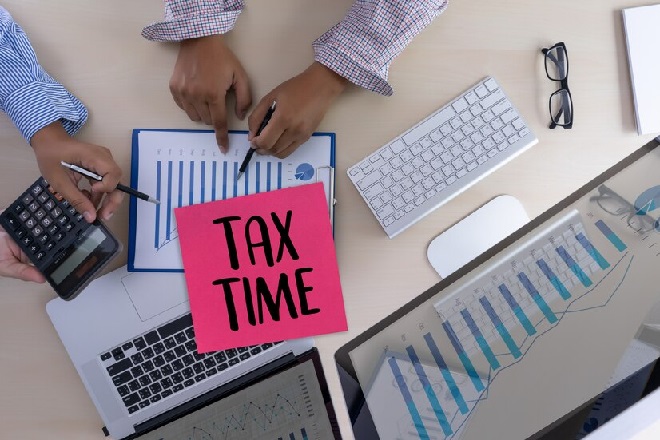
Understanding Tax -Lien Investing
Tax lien investing involves purchasing liens placed on properties by municipalities when the property owner fails to pay their property taxes. The investor pays the tax debt and, in return, receives interest on the amount paid, or potentially acquires the property if the debt remains unpaid.
How Tax- Lien Investing Works
Tax lien investing begins when a local government entity auctions off tax liens to investors. Winning bidders pay the outstanding tax amount, and the property owner then owes the investor. The investor earns interest if the property owner repays the debt within a specified period. If not, the investor may have the opportunity to foreclose on the property.
The Benefits of Tax -Lien Investing
Tax lien investing offers a high potential return, often with minimal risk. Investors can earn significant interest rates, which are often higher than other fixed-income investments. Additionally, tax lien certificates are secured by real estate, providing a tangible asset backing the investment.
The Risks Involved in Tax- Lien Investing
While tax lien investing can be profitable, it carries risks. Investors must consider the possibility of property devaluation, legal challenges, and the potential for the property owner to redeem the lien, which could limit profits. It is essential to conduct thorough due diligence before investing.
How to Get Started with Tax- Lien Investing
To begin investing in tax liens, research local tax lien sales, understand the legal framework in your area, and prepare to bid at auctions. It may be beneficial to consult with a financial advisor or attend workshops to gain a better understanding of the process.
Tax -Lien Investing Strategies for 2024
Successful tax lien investing in 2024 requires a strategic approach. Focus on high-value properties in areas with strong real estate markets, diversify your investments, and stay informed about changes in local tax laws. Networking with other investors can also provide valuable insights and opportunities.
Common Mistakes to Avoid in Tax- Lien Investing
Avoiding common pitfalls can significantly increase your chances of success in tax lien investing. Some common mistakes include bidding too high, neglecting property inspections, and failing to understand redemption periods. Educating yourself on these issues can help you avoid costly errors.
Legal Considerations in Tax -Lien Investing
Tax lien investing is governed by specific laws that vary by state and municipality. Investors must understand these regulations, including redemption periods, interest rates, and foreclosure procedures. Legal advice is often recommended to navigate these complexities.
Tax Implications of Tax- Lien Investing
Investors should be aware of the tax implications associated with tax lien investing. Interest earned on tax liens is typically considered taxable income. Additionally, investors may be subject to capital gains tax if they sell a property acquired through a tax lien.
Future Trends in Tax -Lien Investing
The future of tax lien investing in 2024 looks promising, with continued interest from investors seeking high returns in a low-interest-rate environment. Technological advancements and online auctions are making it easier to participate, and emerging markets are providing new growth opportunities.
FAQs on Tax -Lien Investing
- What is tax- lien investing?
Tax lien investing involves purchasing a lien on a property due to unpaid taxes. The investor pays the taxes owed and, in return, earns interest or may acquire the property if the taxes remain unpaid. - Is tax- lien investing risky?
Yes, there are risks involved, such as property devaluation and legal challenges. However, with proper due diligence, these risks can be managed. - How do I start investing in tax liens?
Research local tax lien sales, understand the legal requirements, and prepare to participate in auctions. Consider consulting a financial advisor for guidance. - What are the benefits of tax -lien investing?
Tax lien investing offers the potential for high returns, secured by real estate, with interest rates often higher than other fixed-income investments. - Can I lose money in tax -lien investing?
Yes, there is a possibility of losing money, especially if the property is devalued or if the lien is redeemed with minimal interest. Proper research is crucial to minimize risks. - What is a redemption period?
A redemption period is the time frame during which a property owner can repay the tax debt and redeem the property. This period varies by location. - How much can I earn from tax -lien investing?
Earnings depend on the interest rate set by the local government and the amount of the lien. Returns can vary widely based on the property and location. - Are there any legal requirements for tax- lien investing?
Yes, tax lien investing is subject to specific laws that vary by state and municipality. It is essential to understand these regulations before investing. - What happens if the property owner doesn’t repay the lien?
If the property owner does not repay the lien, the investor may have the right to foreclose on the property and take ownership. - Is tax -lien investing suitable for beginners?
While it can be profitable, tax lien investing is complex and may not be suitable for beginners without proper education and guidance.
Conclusion: Is Tax -Lien Investing Right for You?
Tax lien investing offers an exciting opportunity for those looking to diversify their investment portfolio with potentially high returns. However, it is not without its challenges. The complexity of the legal landscape, the need for thorough due diligence, and the potential risks mean that tax lien investing is best suited for informed and prepared investors.
If you are willing to invest the time to understand the intricacies of tax lien investing, the rewards can be substantial. By staying informed, networking with other investors, and adopting a strategic approach, you can maximize your chances of success in this unique investment arena.
As with any investment, it is essential to assess your financial goals, risk tolerance, and level of expertise before diving into tax lien investing. Consulting with financial and legal professionals can provide valuable insights and help you navigate this potentially lucrative, yet complex, investment opportunity.
Whether you are a seasoned investor or new to the world of tax lien investing, understanding the fundamentals, staying informed about current trends, and avoiding common pitfalls will position you for success in 2024 and beyond.
Read More Also: CNO Investing for Beginners

